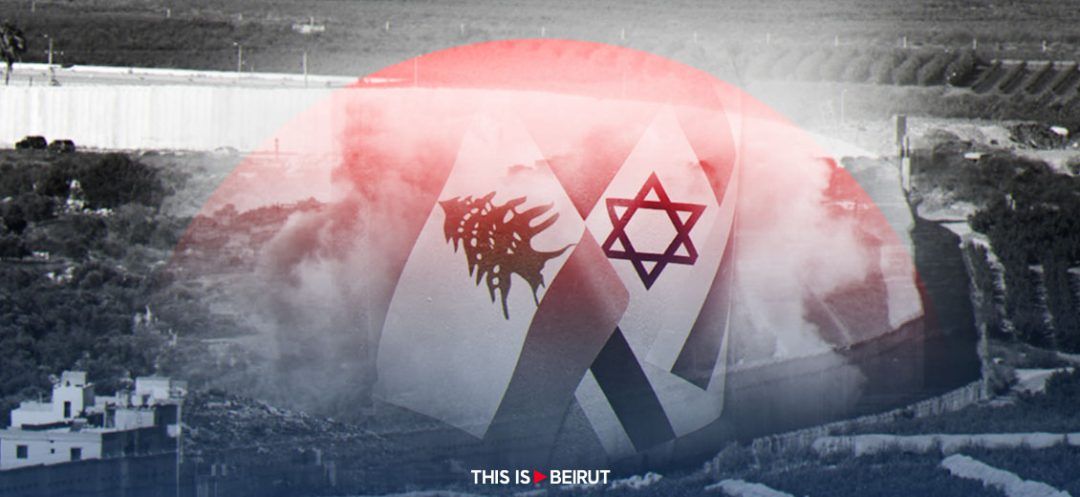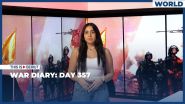- Home
- War in the Middle East
- Israel’s Future Lies in Lebanon

President Charles Helou (1913-2001) titled one of his written works Liban, cette part de Dieu (Lebanon, This Part of God). He should have said, "Lebanon, this dream of God." Lebanon, defined by its historical calling, is a nation in the making, not a static entity. And it always will be. The ongoing struggle for Lebanon's soul will never stop, and it is presently at the heart of current events.
Despite the shady and sometimes hostile nature of its population, Lebanon's essence is peaceful—peaceful and the bearer of pluralism and tolerance. Lebanon defends itself but never attacks. This sharply contrasts with what Hezbollah is currently doing on our southern border. The "low-intensity" war in South Lebanon, in support of Gaza, is not a defensive war but an offensive one, regardless of Hezbollah's attempts to suggest otherwise. All the arguments it presents insinuating that its actions intend to prevent an imminent Israeli attack on Lebanon fall short. The complacent statements from our Prime Minister and the head of our diplomacy on this matter fail to sway public opinion.
This is the first criticism that can be directed at Hezbollah. The second is that its decision to engage in war with Israel was made without any consultation or internal discussions. Not only were Lebanon’s civilian and political components not consulted, but whenever MPs express disagreement with this covert war that threatens to ignite the entire country, they are labeled as Israel’s accomplices. Patriarch Rai and Samy Gemayel are keenly cognizant of this issue.
The third argument against Hezbollah's involvement in the war brings us to the core of the matter. Lebanon has been characterized by Pope John Paul II as a prophetic "message" addressed to both the East and the West. The foundational values of Lebanon include pluralism, tolerance, moderation and the acknowledgment of everyone’s rights.
However, it is blatant that as these values lose relevance in Israel, our own values become more prominent on the global stage. It is not an overstatement to say that Lebanon’s parliamentary democracy (however flawed) is Israel’s future. Sooner or later, this State will need to embrace democratization and treat the peoples under its authority equally. While for now, this may seem like a utopian vision, time is gradually aligning in support of this notion.
This is what Michel Edde (1928-2019), one of the greatest experts on Israel in the Middle East, confided to his closed ones on the eve of his death. It served as his political testament for this region. As early as the dawn of this century, he foresaw the deadlock of the two-state solution, mainly due to the policy of colonization, especially in the West Bank. He firmly believed that Israel would never relinquish the West Bank, viewing it as Judea and Samaria – the very heart of the "Promised Land" whose heritage it claims. The former Minister of Culture, who identified as "philosemitic" and boasted his closeness with Hezbollah, foresaw an inevitable transformation of the Israeli state into "a state for two peoples" – a pluralistic state just like Lebanon, rather than for Jews only. He was inclined to believe that Israel wanted to dismantle the Lebanese political model to better legitimize its own apartheid policies.
This is one of the reasons why Hezbollah should reassess its precarious policy of solidarity with Hamas and the Palestinian people and, instead, align itself with Lebanon's historical pluralistic calling. Far from dismissing or undermining the sacrifice currently being made by dozens of men in South Lebanon, the Maronite Patriarch is critical of the adventurous politics of the ones leading them astray.
At a deeper level, and key to its historical calling, if Lebanon wants to remain faithful to the “religious roots” of its identity, it has the duty to morally engage with both Israel and the Arab world. Its primary task is to convey to Israel that salvation won't come through war; rather, it's only by ensuring a future for the Palestinians that it can truly live peacefully. Concerning the Arab world, the crucial step that Lebanon needs to make is to convey the message that in order to recover, it must reclaim the complete use of reason and subject its entire political and religious legacy to critical examination.
As an example, the modernization of Saudi Arabia cannot be reduced to merely granting women the right to drive, engaging in architectural grandeur, football, concerts and alcohol consumption. It will remain incomplete until the country establishes diplomatic relations with the Vatican and/or authorizes the construction of churches.
However, there is a third message that Lebanon must convey to the Arab world, if it is to remain true to its calling, and this introspective message must first be imparted to the country itself. Journalist Jonathan Randal wrote a stringent book on the Lebanese War, titled The Tragedy of Lebanon. In his book, the author explains how the madness of "warlords," the "adventurism" of certain leaders, the fickle nature of US diplomacy and the double-talk of false allies plunged a people into a bloodbath and reduced a state to nothingness.
We have not yet fulfilled our duty to remember nor critically assessed the unleashed violence that ravaged Lebanon. As highlighted by a repentant militia member, every April 13th, we commemorate the beginning of the Civil War, but we have not yet established a day to honor its ending.
A gathering aimed at preserving the idea of Greater Lebanon recently took place in Bkerke. However, its plea fell on deaf ears, as it lacked the clear, existential acknowledgment of our collective responsibility in this historical debacle. In the hundred and some years that Lebanon has existed, there is virtually nothing left to preserve. Everything has been tainted, distorted and squandered. To put an end to our endless internal conflict, a complete reinvention of Lebanon is needed.
Read more



Comments